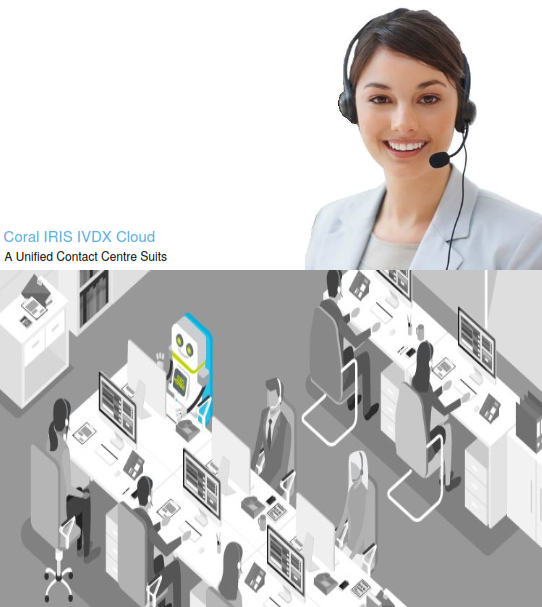Coral Unified Contact Center Suites (UCCS) are comprehensive platforms that integrate various communication channels and tools into a single, cohesive system. These suites enable businesses to manage customer interactions across multiple channels seamlessly, ensuring consistent service and improving overall efficiency.
Key Components of Unified Contact Center Suites
Automatic Call Distributor (ACD)
Function: Routes incoming calls to the most appropriate agents.
Features: Skill-based routing, call queuing, priority handling, and real-time monitoring.
Interactive Voice Response (IVR)
Function: Automates initial customer interactions and self-service options.
Features: Multi-level menus, voice recognition, touch-tone navigation, and database integration.
Customer Relationship Management (CRM) Integration
Function: Centralizes customer information and interaction history.
Features: Contact management, case management, interaction history, and integration with other business applications.
Call Recording and Quality Management
Function: Captures and stores calls for quality assurance, training, and compliance.
Features: Call recording, live monitoring, playback, call scoring, and evaluation tools.
Outbound Dialing Solutions
Function: Automates outbound call campaigns for sales, surveys, and notifications.
Types:
Predictive Dialer: Dials multiple numbers and connects answered calls to available agents.
Preview Dialer: Provides call details to agents before dialing.
Progressive Dialer: Dials one number at a time when agents are available.
Reporting and Analytics
Function: Provides insights into contact center performance and customer interactions.
Features: Customizable dashboards, real-time and historical reports, advanced analytics tools, and performance metrics.
Knowledge Base
Function: Provides agents with quick access to information needed to assist customers.
Features: Articles, FAQs, troubleshooting guides, and search functionality.
Ticketing and Case Management
Function: Tracks and manages customer issues and service requests.
Features: Ticket creation, prioritization, tracking, resolution, and escalation.
Unified Communications
Function: Integrates various communication tools to streamline agent interactions.
Features: VoIP, video conferencing, instant messaging, and email integration.
Feedback and Survey Management
Function: Collects and analyzes customer feedback to improve services.
Features: Post-interaction surveys, feedback forms, sentiment analysis, and reporting.
Benefits of Unified Contact Center Suites
Enhanced Customer Experience
Consistent service across multiple channels.
Quick resolution of customer queries and issues.
Personalized interactions based on unified customer data.
Improved Efficiency
Centralized management of all communication channels.
Reduced response times and higher first-contact resolution rates.
Streamlined workflows and better resource utilization.
Increased Agent Productivity
Easy access to customer information and knowledge bases.
Tools for efficient handling of interactions and multitasking.
Real-time monitoring and performance feedback.
Scalability and Flexibility
Easy to scale up or down based on business needs.
Adaptable to new communication channels and technologies.
Flexible deployment options (on-premise, cloud, or hybrid).
Comprehensive Reporting and Analytics
Detailed insights into customer interactions and agent performance.
Data-driven decision-making and continuous improvement.
